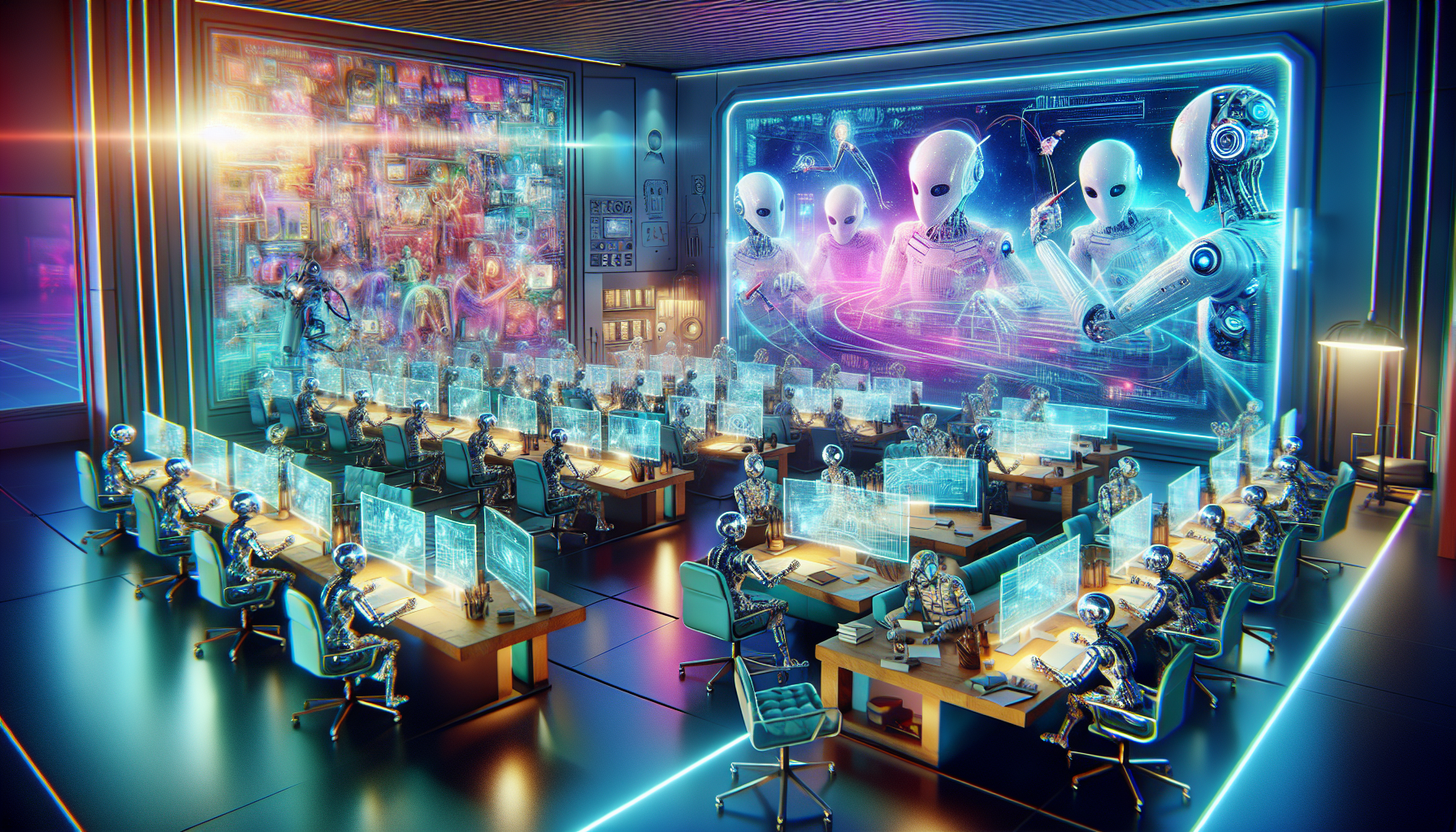
Welcome to the Wild World of AI Screenwriting!
If you’ve ever thought screenwriting was just for those caffeine-addicted, typewriter-toting humans camped out in Hollywood cafes, think again! We’re diving headlong into the digital age where AI is taking a crack at the ancient art of storytelling. Yes, that’s right—AI screenwriting for films is not just a futuristic dream; it’s happening right here, right now, and it’s as wild and wacky as it sounds.
How Does AI Screenwriting Even Work?
Imagine you’re cooking, but instead of a sous-chef, you’ve got a robot that not only chops onions without crying but also suggests adding a pinch of saffron for an exotic twist. That’s somewhat akin to how AI screenwriting works. It involves using sophisticated algorithms (fancy word for digital recipes) that analyze thousands of films, scripts, and novels to understand story structures, character development, and even dialogue.
These AI systems, such as OpenAI’s GPT (Generative Pre-trained Transformer), can then generate original content based on prompts or themes. Need a noir thriller set in future Mars colony? Or perhaps a romantic comedy where the protagonists are AI themselves, navigating the quirks of human emotions? Ask, and ye shall receive (terms and conditions of coherence may apply).
The Pros, The Cons, and The Hilariously Unexpected
The Good
First off, AI can be a tireless brainstorming partner, churning out ideas faster than a Hollywood executive saying, But can it be more like ‘Game of Thrones’? It’s also great for overcoming writer’s block or generating content for background TV shows and movies within films.
The Not-So-Good
However, let’s not hand over the Oscars to our AI overlords just yet. While AI can string together a screenplay, it lacks the depth, nuances, and emotional intelligence of human writing (for now). Scenes can come off as wooden, or unexpectedly, hilariously bizarre. Imagine a romantic scene where the AI’s idea of flirting is discussing the weather patterns of Jupiter—charming in its own way but slightly off-target.
The Utterly Bizarre
And then there’s the wonderfully weird side of AI screenwriting. Ever wanted to see a film where the main character is a sentient toaster with existential angst? AI might pitch you just that. The unexpected, off-the-wall concepts generated by AI can be a goldmine for avant-garde filmmakers or a Friday night laugh fest. It’s like having a box of chocolates where half are filled with toothpaste—you never know what you’re gonna get.
Reality Check: AI and the Future of Filmmaking
While the thought of AI taking over the screenwriting realm can either seem like a dream come true or an Orwellian nightmare, the reality is more nuanced. AI in screenwriting acts as a tool, an assistant of sorts. It can augment human creativity, providing a jumping-off point that can be shaped, molded, and refined by the human touch. At least, until it learns to ghostwrite autobiographies.
The potential for AI in filmmaking extends beyond just scriptwriting. From pre-production analysis, predicting audience reactions, to even casting recommendations, AI is poised to transform the filmmaking process. Still, the heart and soul of storytelling—capturing the essence of human experience, the subtleties of dialogue, the profundity of silence—remains distinctly human.
So, grab your popcorn (and maybe a hard hat, just in case) as we embark on this exciting, slightly bizarre journey into the world of AI screenwriting. Whether it’s a boon, a bane, or a source of comic relief, one thing is for sure: the script for the future of filmmaking is still being written, and AI might just get a co-writing credit.






